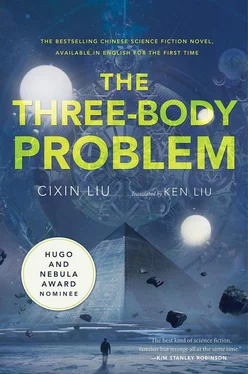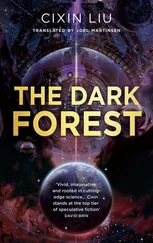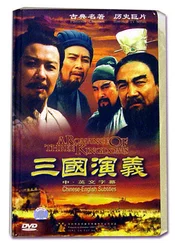“I helped a reporter from the Great Production News . He was here a few weeks ago. His name is—”
“Ye Wenjie!” Director Zhang’s two black eyes were trained on her like the barrels of two guns. “I am warning you: Framing others will only make your problem worse. We’ve already clarified the situation with Comrade Bai Mulin. His only involvement was posting the letter from Hohhot under your direction. He had no idea as to the letter’s contents.”
“He… he said that?” Ye felt everything go black before her eyes.
Instead of answering, Director Zhang picked up the book. “Your letter was clearly inspired by this book.” He showed the book to the company director and the political instructor. “ Silent Spring was published in America in 1962 and has been quite influential in the capitalist world.”
He then took another book out of the briefcase. The cover was white with black characters. “This is the Chinese translation. The appropriate authorities distributed it to select cadres as internal reference so that it could be criticized. As of now, the appropriate authorities have already given their clear judgment: The book is a toxic piece of reactionary propaganda. It takes the stance of pure historical idealism and espouses a doomsday theory. Under the guise of discussing environmental problems, it seeks to justify the ultimate corruption of the capitalist world. The content is extremely reactionary.”
“But this book… it doesn’t belong to me.”
“Comrade Bai was appointed as a translator by the appropriate authorities. So it was perfectly legitimate for him to carry it. Of course, he is responsible for being careless and allowing you to steal it while he was participating in Construction Corps work assignments. From this book, you obtained intellectual weapons that could be used to attack socialism.”
Ye Wenjie held her tongue. She knew that she had already fallen to the bottom of the pit. Any struggle was useless.
* * *
Contrary to certain historical records that later became publicized, Bai Mulin did not intend to frame Ye Wenjie at the start. The letter he wrote to the central leadership in Beijing was likely based on a real sense of responsibility. Back then, many people wrote to the central leadership with all kinds of personal agendas. Most of these letters were never answered, but a few of the letter writers did see their political fortunes rise meteorically overnight, while others invited catastrophe. The political currents of the time were extremely complex. As a reporter, Bai believed he could read the currents and avoid dangerous sensitivities, but he was overconfident, and his letter touched a minefield that he did not know existed. After he heard about its reception, fear overwhelmed everything else. In order to protect himself, he decided to sacrifice Ye Wenjie.
Half a century later, historians would all agree that this event in 1969 was a turning point in humankind’s history.
Without intending to, Bai became a key historical figure. But he never learned of this fact. Historians recorded the rest of his uneventful life with disappointment. He continued to work at Great Production News until 1975, when the Inner Mongolia Production and Construction Corps was disbanded. He was then sent to a city in Northeast China to work for the Science Association until the beginning of the eighties. Then he left the country for Canada, where he taught at a Chinese school in Ottawa until 1991, when he died from lung cancer. For the rest of his life, he never mentioned Ye Wenjie, and we do not know if he ever felt remorse or repented for his actions.
* * *
“Wenjie, the company has treated you extremely well.” The company commander exhaled a thick cloud of smoke from his Mohe tobacco. He stared at the ground and continued. “By birth and family background, you’re politically suspect. But we’ve always treated you as one of our own. Both the political instructor and I have spoken to you many times concerning your tendency to sequester yourself from the people, and your lack of self-motivation in seeking progress. We want to help you. But look at you! You’ve committed such a serious error!”
The political instructor picked up the theme. “I’ve always said that I thought she had a deep-rooted resentment of the Cultural Revolution.”
“Have her escorted to division headquarters this afternoon, along with the evidence of her crime,” Director Zhang said, his face impassive.
* * *
The three other women prisoners in the cell were taken away one by one until only Ye was left. The small pile of coal in the corner had been exhausted, and no one came to replenish it. The fire in the stove had gone out a while ago. It was so cold in the cell that Ye had to wrap herself in the blanket.
Two officials came to her before it got dark. The older one, a female cadre, was introduced by her associate as the military representative from the Intermediate People’s Court. [7] Author’s Note: During that phase of the Cultural Revolution, most intermediate and higher people’s courts and procuratorial organs (responsible for investigating and prosecuting crimes) were under the control of military commissions. The military representative had the final vote on judicial matters.
“My name is Cheng Lihua,” the cadre introduced herself. She was in her forties, dressed in a military coat, and wore thick-rimmed glasses. Her face was gentle, and it was clear that she had been very beautiful when she was young. She spoke with a smile and instantly made people like her. Ye Wenjie understood that it was unusual for such a high-grade cadre to visit a prisoner about to be tried. Cautiously, she nodded at Cheng and moved to make space on her narrow cot so she could sit down.
“It’s really cold in here. What happened to your stove?” Cheng gave a reprimanding look to the head of the detention center standing at the door of the cell. She turned back to Ye. “Hmm, you’re very young. Even younger than I imagined.”
She sat down on the cot right next to Ye and rummaged in her briefcase, still muttering. “Wenjie, you’re very confused. Young people are all the same. The more books you read, the more confused you become. Eh, what can I say….”
She found what she was looking for and took out a small bundle of papers. Looking at Ye, her eyes were filled with kindness and affection. “But it’s not a big deal. What young person hasn’t made some mistakes? I made mistakes myself. When I was a young woman, as a member of the art troupe for the Fourth Field Army, I specialized in singing Soviet songs. One time, during a political study session, I announced that China should cease to be a separate country and join the USSR as a member republic. That way, international communism would be further strengthened. How naïve I was! But who wasn’t once naïve? What’s done is done. When you make a mistake, what’s important is to recognize it and correct it. Then you can continue the revolution.”
Cheng’s words seemed to draw Ye closer to her. But after having gone through so many troubles, Ye had learned to be cautious. She did not dare to believe in this kindness, which almost resembled a luxury.
Cheng placed the stack of papers on the bed in front of Ye and handed her a pen. “Come now, sign this. Then we can have a good heart-to-heart and resolve your ideological difficulties.” Her tone was like that of a mother trying to encourage her daughter to eat.
Ye stared at the stack of papers silently and motionlessly. She did not pick up the pen.
Cheng gave her a forgiving smile. “You can trust me, Wenjie. I personally guarantee that this document has nothing to do with your case. Go ahead. Sign it.”
Читать дальше












